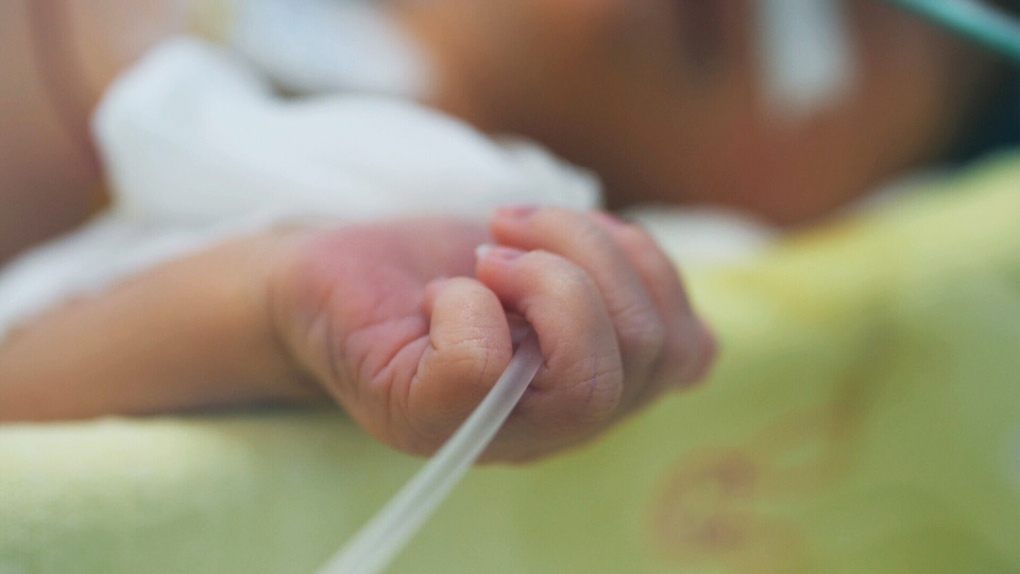Canadian-made app can flag genetic links to cancer among child patients, their families

An app developed partly by Montreal researchers can help show which kids with cancer have an underlying genetic condition that predisposed them—and may predispose their family members—to the disease.
The screening tool, developed by a team at McGill University, could change not only how small cancer patients are treated, but help detect new cases sooner, said a release from McGill.
A new study in the JAMA Oncology medical journal found the app worked—the first one of its kind that has been proven to perform accurately.
The question of underlying genetic conditions is an important one, said McGill, since about one in 10 pediatric cancer patients have this kind of predisposition, known as a CPS (cancer predisposition syndrome).
There are about 100 known CPSs.
Still, “it is often difficult for doctors to know which of their patients has an underlying CPS,” the release said.
Armed with that knowledge, doctors can do a better job treating their child patients but also helping their families prevent future cancers.
“Diagnosing a child or youth with a CPS is important to adjust the patient’s current cancer treatment, offer screening to family members and consequently, provide cancer surveillance services to detect new cancers faster,” said the release.
The free online tool, called MIPOGG, will especially help small hospitals and those in rural areas, away from the major teaching hospitals, said one of the project’s leaders.
“While some large academic hospitals have the capacity to offer genetic testing to every single patient in oncology, most hospitals are not able to offer genetic evaluations to all (or any of) their patients,” said Dr. Catherine Goudie, a pediatric hematologist-oncologist at the Montreal Children’s Hospital.
The tool works by using algorithms to analyze patient data, along with family history, to find “recognized associations” with each of the known CPSs, the release said.
Then it alerts doctors when it spots a child that’s likely to have one of these genetic conditions, sending a recommendation to do a genetic evaluation on that child.
The app was five years in the making and was the work of a long list of collaborating scientists at McGill, the Montreal Children’s Hospital and SickKids in Toronto.
Thursday’s journal article evaluated the app’s performance in more than 1,000 children with cancer in 15 sites. It was found to correctly spot 99.5 per cent of patients who had a CPS, recommending them for genetic evaluation.
But even before that study showed it worked, the app was being used by more than 800 doctors and students in more than 50 countries, said the release.
It’s free, available in French and English, and works with all types of cancers that can affect children and teens.
The app may be useful for even more purposes in the future. In another recently published study, in the Journal of Clinical Oncology, the same team of researchers showed that it can help predict which children who survive cancer are at high risk of developing other cancers later in life.
CTVNews.ca Top Stories

B.C. seeks ban on public drug use, dialing back decriminalization
The B.C. NDP has asked the federal government to recriminalize public drug use, marking a major shift in the province's approach to addressing the deadly overdose crisis.
Orca calf that was trapped in B.C. lagoon for weeks swims free
An orca whale calf that has been stranded in a B.C. lagoon for weeks after her pregnant mother died swam out on her own early Friday morning.
Trump's lawyers try to discredit testimony of prosecution's first witness in hush money trial
Donald Trump's defence team attacked the credibility Friday of the prosecution's first witness in his hush money case, seeking to discredit testimony detailing a scheme between Trump and a tabloid to bury negative stories to protect the Republican's 2016 presidential campaign.
Sophie Gregoire Trudeau on navigating post-political life, co-parenting and freedom
Sophie Gregoire Trudeau says there is 'still so much love' between her and Prime Minister Justin Trudeau, as they navigate their post-separation relationship co-parenting their three children.
Air traveller complaints to Canadian Transportation Agency hit new high
The Canadian Transportation Agency has hit a record high of more than 71,000 complaints in a backlog. The quasi-judicial regulator and tribunal tasked with settling disputes between customers and the airlines says the backlog is growing because the number of incoming complaints keeps increasing.
More than 115 cases of eye damage reported in Ontario after solar eclipse
More than 115 people who viewed the solar eclipse in Ontario earlier this month experienced eye damage after the event, according to eye doctors in the province.
'I was scared': Ontario man's car repossessed after missing two repair loan payments
An Ontario man who took out a loan to pay for auto repairs said his car was repossessed after he missed two payments.
76ers All-Star centre Joel Embiid says he has Bell's palsy
Philadelphia 76ers All-Star centre Joel Embiid has been diagnosed with Bell’s palsy, a form of facial paralysis he says has affected him since before the play-in tournament.
U.S. flight attendant indicted in attempt to record teen girl in airplane bathroom
An American Airlines flight attendant was indicted Thursday after authorities said he tried to secretly record video of a 14-year-old girl using an airplane bathroom last September.































